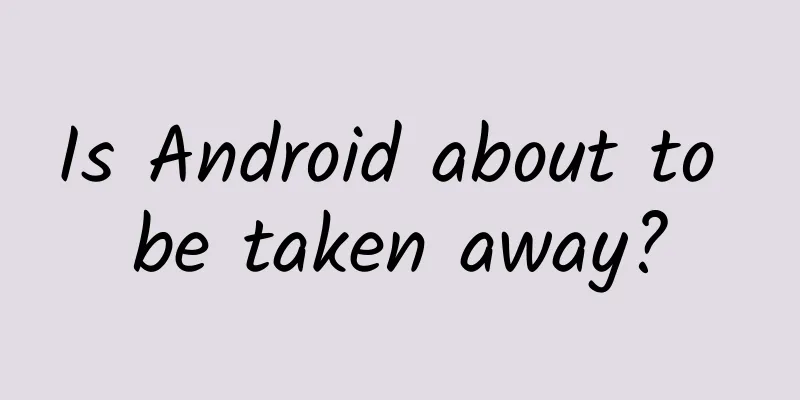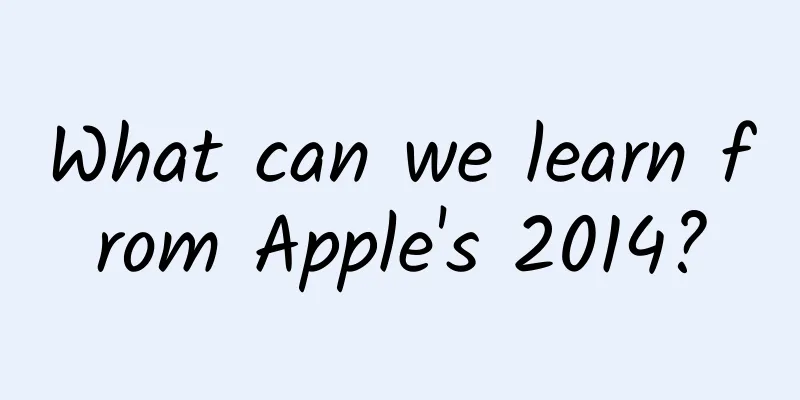Is Android about to be taken away?

|
When Cyanogen CEO Kirt McMaster announced that he wanted to take Android away from Google, it immediately attracted a lot of criticism and doubt. The reason for the criticism is that many Cyanogen users are also supporters of Google (some people flash third-party ROMs just to enjoy the original Android), and its corporatization is unsatisfactory; the reason for the doubt is that although removing Google services is feasible, it requires strong strength or a special market to achieve commercial success, so even the powerful Samsung does not dare to do so. Does it seem like Cyanogen's plan is just a ridiculous idea? After interviewing CEO Kirt McMaster, Fastcompany believes that Cyanogen's plan to take over Android may not be so ridiculous. First, Cyanogen reached an agreement with chip manufacturer Qualcomm to put the Cyanogen system into reference design phones. This means that phone manufacturers can obtain functions beyond native Android, such as themes and privacy controls, and Cyanogen is responsible for system upgrades. This is not enough to pose a threat to Google. However, as the number of users continues to increase, Cyanogen has the strength to replace Google services. Cyanogen's plan is to find alternatives to Google services and then deeply integrate them into the system. For example, replace the automatic backup service with Dropbox, or use Spotify as a built-in music software. In this way, when you ask the phone to play music, it will play Spotify instead of Google Play Music. "I can say to the phone, 'Play a song,' and then that song will play on the Sonos speaker in my bedroom, using Spotify," McMaster said. In addition, Cyanogen will cooperate with some small companies, such as companies that develop virtual assistant software. Their services may be superior, but they can't compete with Google Now, because Google Now is a system-level integration. In addition to system-level services, Cyanogen will also provide its own software store. Unlike Google Play, Cyanogen may provide multiple application stores from different providers. He said that China has a variety of application stores, some of which provide professional software. This model is also feasible in other countries. Even so, it's still difficult to build an ecosystem that can compete with Google. So Cyanogen hopes that it won't completely cut ties with Google. "As a company, we like Google. We like Google's services. I use Google services every day," McMaster said. "We want to work with Google. As for whether they want to work with Cyanogen, it depends on their willingness." "That was more of a rallying cry that we desperately need an open Android and an open computing platform," McMaster said of the talk of taking over Android. "We're not naive enough to think that we can take over Android and have 500 million users." "We want people to have an open choice, and that's what we fight for. Believe me, it's a fight. So we're not going to sit back like kittens and play with this," he said. "We're going to be aggressive." |
<<: Smart hardware industry leaders give in-depth analysis of Apple Watch
>>: [Powerful] D3.js visualizes the number of SSH brute force attacks
Recommend
What is open source? Where did it come from and where is it going?
Many domestic software companies or research inst...
The official version of iOS 17.4 is here, summary of new features!
Early this morning, Apple pushed the official ver...
2021CP Circle Report: New Brand Play!
In the "2021 CP Circle Marketing Report"...
The gameplay and rules of WeChat ecosystem fission growth!
Looking back at the development of mobile Interne...
How to create a super user? Let’s clarify 3 points first!
Creating super users is not just a slogan, but a ...
New policy on delayed wage payment for resumption of work: How to calculate wages for working from home? Can I still get paid while in quarantine?
After experiencing the extended Spring Festival h...
Useful post! Compiled from 22 copyright-free, free, high-definition picture material websites!
There is no doubt that picture materials are beco...
Super bacteria, the "devil of the world" raised by humans
Super bacteria, as the name suggests, are particu...
Tesla's batteries depend on its Gigafactory's history
Tesla has just released its second quarter 2016 f...
The main character of the starship's first flight was replaced. What is the strength of the new combination of Raptor configuration?
The starship's first flight changes the prota...
Dai Jifeng | The “Temperature” of Traffic
"The problem of 'Chinese-style roads'...
Can the mobile version of Win 10 break through?
[[146917]] Microsoft is like an old man in the IT...
Short video live streaming sales: How did live streaming achieve sales of over 100 million yuan?
When was the first time you learned about short v...
More than 10 million doses of COVID-19 vaccine have been administered! Here's how to find the nearest vaccination site
Since the implementation of the COVID-19 vaccinat...
[Hu Yong SEO] Some SEOs have been working for more than ten years but are still rookies. Why is this so?
Some SEOs have been working for more than ten yea...





![[Dry stuff!] 】How to save money and improve efficiency in advertising? Data optimization "three axes"](/upload/images/67cc277a7d0e5.webp)



